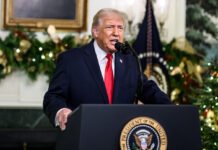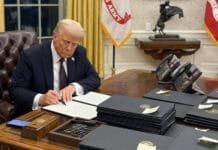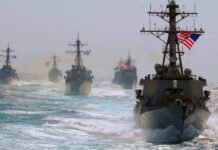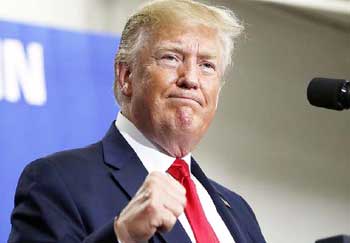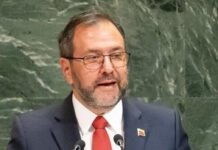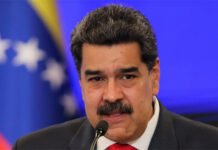In a dramatic escalation of tensions between Washington and Caracas, the United States has authorized covert CIA operations in Venezuela, sparking global outrage and fears of a renewed Cold War-style confrontation in Latin America. While the White House insists the missions are “targeted counter-narcotics operations,” multiple international observers and Caracas officials call them a thinly veiled regime-change attempt.
The development follows a series of U.S. air and naval strikes on vessels accused of drug trafficking near Venezuelan waters — strikes that killed several individuals. The Venezuelan government has denounced the attacks as “acts of aggression” and violations of international law.
“The U.S. government is not fighting drugs — it’s fighting our sovereignty,”
declared President Nicolás Maduro, addressing thousands of supporters in Caracas’ Plaza Bolívar.
“They tried coups, sanctions, cyberattacks — and now, they’re using missiles.”
🧠 Background: A Long-Standing Political Cold War
The strained relationship between the U.S. and Venezuela dates back to the Hugo Chávez era, when Caracas began aligning itself with anti-U.S. powers like Russia, China, and Iran. The Trump and Biden administrations imposed heavy economic sanctions to weaken the socialist government and curb oil exports — Venezuela’s lifeline.
However, 2025 has seen an unprecedented level of confrontation. According to a report from The Washington Post, the CIA’s involvement was expanded under a new directive allowing operations against “narco-political threats.” This effectively broadened U.S. intelligence authority to act against regimes accused of drug trafficking or corruption.
Political analysts warn that this blurred definition opens the door for unilateral interventions without congressional oversight — a move that has drawn criticism even within the United States.
“It’s a slippery slope when intelligence missions overlap with foreign policy,”
said Professor Maria Santos, a Latin American political expert at Georgetown University.
“It sets a precedent that could destabilize not just Venezuela but the entire region.”
💣 Military Strikes and Global Fallout
Over the past week, U.S. naval forces launched precision strikes on suspected narcotics vessels in the Caribbean, claiming these were linked to the Cartel de los Soles, an organization alleged to have ties with Venezuela’s top military brass.
The Pentagon defended the actions as “necessary for regional security,” but international law experts have questioned the legality of these strikes conducted without United Nations authorization.
Latin American governments have voiced concern over the implications of U.S. actions. Mexico, Brazil, and Argentina jointly called for restraint, urging both Washington and Caracas to engage in diplomacy.
“We cannot afford another foreign intervention in Latin America,”
said Luiz Inácio Lula da Silva, the Brazilian president.
“History has shown that military actions only deepen regional instability.”
Meanwhile, Russia and China have issued statements of solidarity with Venezuela, accusing the U.S. of “neo-colonial aggression.” The Kremlin warned that further escalation could “provoke an unpredictable geopolitical chain reaction.”
🔥 Maduro’s Countermove: “Operation Sovereign Shield”
In response, Maduro has ordered the mobilization of Venezuelan forces along coastal regions and announced “Operation Sovereign Shield”, aimed at “defending national waters and airspace against imperialist intrusion.” State media broadcast images of naval drills and military parades across the country, framing them as a patriotic defense effort.
The Venezuelan government has also sought support from the United Nations and the Non-Aligned Movement, requesting an emergency session to condemn the U.S. attacks. In a fiery statement, the Venezuelan Foreign Ministry accused Washington of violating international sovereignty and attempting to “provoke regime change through violence.”
At home, Maduro has leveraged the crisis to consolidate internal power. Opposition figures claim the government is using the situation to suppress dissent, restrict media coverage, and rally nationalist sentiment.
🌎 What’s Next: A Tense Diplomatic Path Ahead
Analysts predict a prolonged standoff rather than an immediate military conflict. The United States is unlikely to invade, but the continuing covert operations could escalate into cyber or economic warfare. Oil markets have already reacted — Brent crude prices rose by 2.3% amid fears of supply disruptions.
The United Nations Security Council is expected to convene later this week to discuss the situation, though diplomats privately acknowledge that no resolution is likely, given the veto powers of both the U.S. and Russia.
Still, many experts warn that the crisis could have far-reaching effects beyond Latin America.
“What we’re witnessing is not just a U.S.–Venezuela story,”
said Dr. Alejandro Torres, an analyst at the Council on Foreign Relations.
“It’s a test of global governance — of how the world manages power, law, and legitimacy in an era of polarized politics.”
🕊️ Conclusion
As Washington doubles down on its security narrative and Caracas fortifies its defenses, the world watches uneasily.
The crisis underscores how modern conflicts are waged as much through intelligence, economics, and information as through military might.
Whether the world’s major powers can de-escalate this confrontation will determine not only Venezuela’s future — but also the credibility of international law in a shifting global order.



